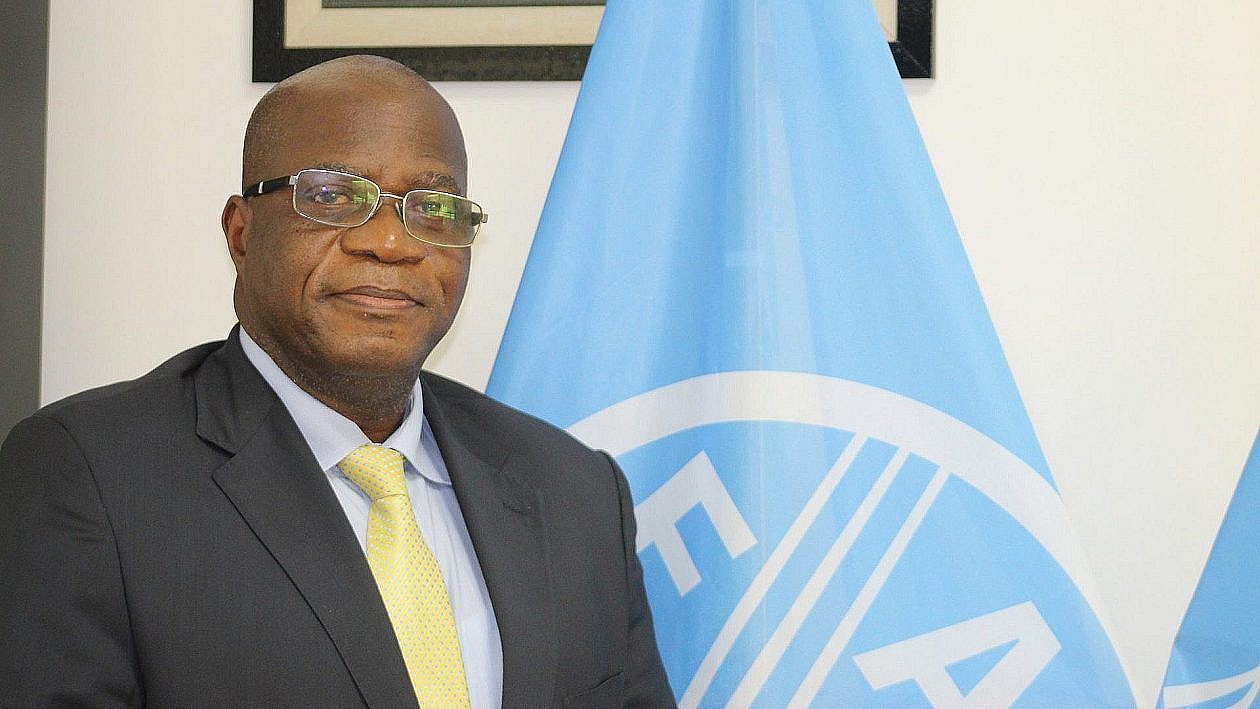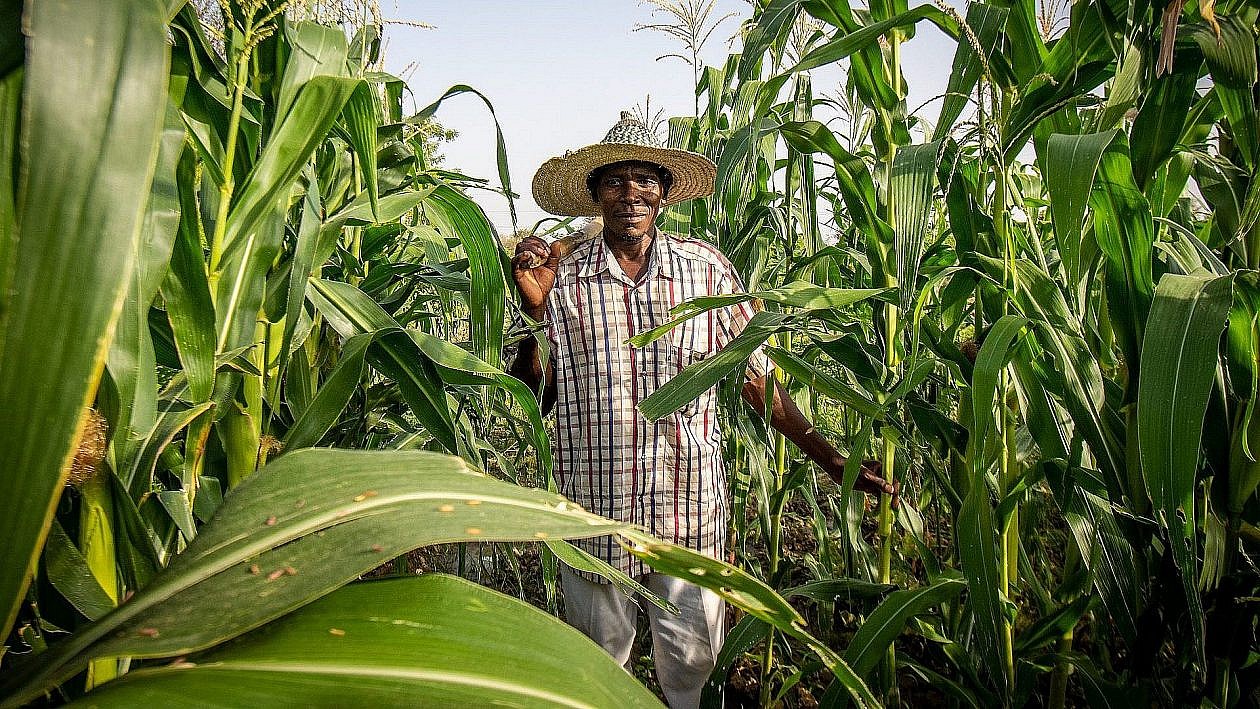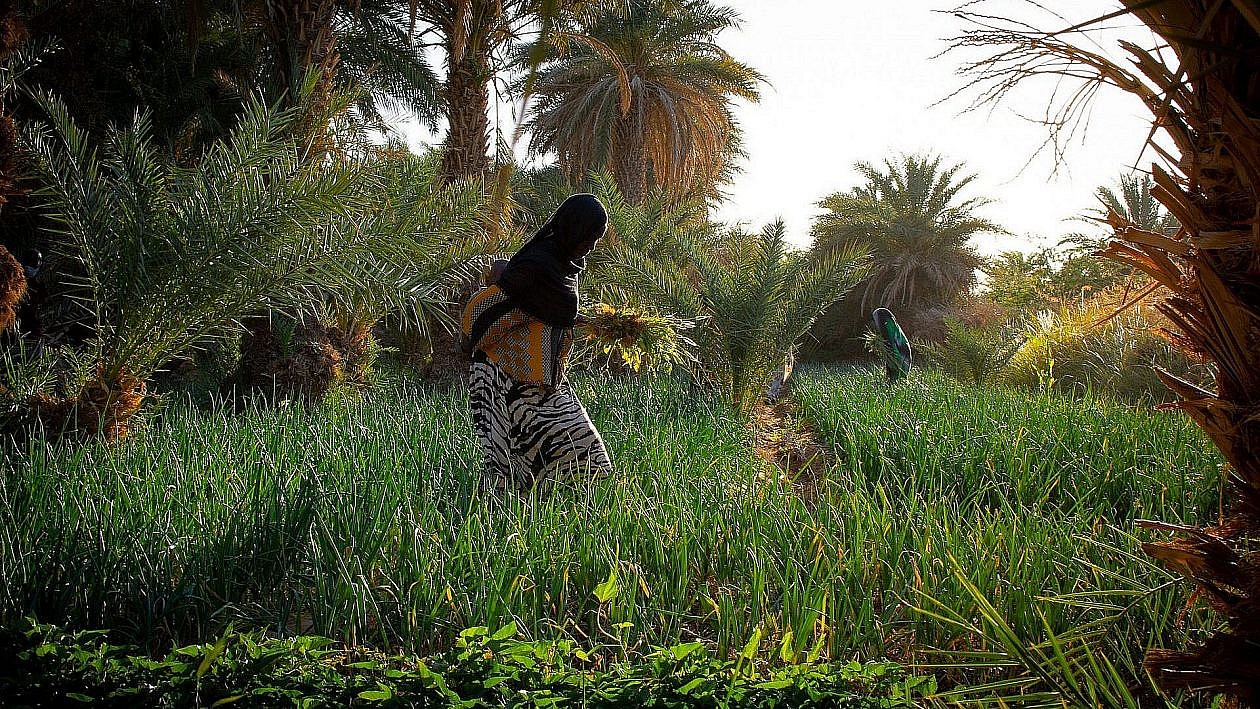“We must draw inspiration from the good practices developed by the Sahelians in soil conservation”
On the sidelines of the fifteenth session of the Conference of the Parties (COP15) of the United Nations Convention to Combat Desertification (UNCCD), an interview with the Sub-Regional Coordinator for West Africa and FAO Representative in Senegal, Dr Gouantoueu Robert GUEI.

In the Sahel, and more particularly in the G5 Sahel area (name the countries), what are the most important current challenges in terms of soil conservation and the fight against desertification?
Land degradation and desertification are two major threats to the Sahel region. They are linked to other issues such as climate change, population growth, the challenges of increasing agricultural productivity but also the massive displacement of populations due to terrorism. It should also be noted that the challenges linked with the availability of water are very worrying: 80% of the population in West Africa and the Sahel live in arid or semi-arid zones with a drastic reduction in biomass, which is very important in soil conservation. In rural areas, 95 per cent of the population uses land affected by land degradation, and 62% of these people live below the poverty line. Poverty and land degradation form a vicious cycle, which we must strive to break.
Degraded soils can no longer produce food in sufficient quantity and quality. It is estimated that Africa is one of the desertification-prone continents, with 45% of land affected, 55% of which is at risk of further degradation if appropriate measures are not taken. It is estimated that 12,000,000 hectares of land are lost each year, which if preserved could produce up to 20 million tonnes of cereals annually.
How do these threats to land affect food sovereignty, and more broadly the living conditions of populations?
The latest report of the Harmonised Framework (Cadre Hamonisé, CH) shows that more than 27 million people are food insecure in the Sahel and West Africa for the period from March to May 2022, including nearly 1.3 million people in an emergency situation (Phase 4) and nearly 26 million in crisis situations (Phase 3). During the lean season, from June to August 2022, this number could reach 38.3 million people, including nearly 2.7 million in emergency situations (phase 4).
These figures indicate the fragility of the livelihoods of people in this sub-region, and more particularly in the G5 Sahel countries that rely mainly on rain-fed agriculture. In these areas, people cannot produce everything they need locally. Governments must resort to importing basic foodstuffs to make up the shortfall. But it is important to stress that all the governments in the Sahel and West Africa with whom we work are aware of the current challenges of food sovereignty.
Several countries are currently studying the possibilities of developing and strengthening local cereal production: millet, sorghum, maize, endogenous cereals to be developed for making bread substitutes and other dishes to feed families.

How does the FAO support Sahelians in preserving their soils and, more broadly, in the fight against climate change?
The solutions from the FAO and its partners contribute to preventing, halting and reversing the degradation of terrestrial ecosystems. The loss of soil quality for us is not inevitable. It can always be reversed. We are working with governments and sub-regional organisations (ECOWAS, CILSS, UEMOA, G5 Sahel…) to put in place coherent policies, strategies, programmes and projects. By raising the awareness of local governments and populations, we will be able to prevent the degradation of ecosystems.
For example, we are developing several initiatives in this regard:
- Two programmes are being developed with and at the request of ECOWAS. These are the Agroecology programme and the Integrated Water Resources Management programme. This is a sub-regional initiative for climate resilient and sustainable agro-sylvo-pastoral and fisheries production using nature-based solutions, acting on water control, soil and water conservation, restoration of degraded land and improvement of soil health.
- FAO implements the “Action Against Desertification” programme in support of the Great Green Wall (GGW) in the fight against land degradation and desertification, sustainable management and restoration of their forests and rangelands in drylands. As a result, 25 million trees, combined with fodder grasses, were planted on 53,000 hectares of degraded agro-sylvo-pastoral land under restoration and a further 15,000 hectares restored through sustainable land management methods.
- What we are learning in the Great Green Wall regions can be replicated in other countries with the FAO’s expertise throughout the sub-region.
- Several resilience and rational natural resource management projects are being implemented, including: – the GLONET project, – the 1 million tanks for the Sahel project, – the Fouta Djalon project, – The Global Transformation of Forests for People and Climate project in West Africa.
- We have also developed many tools and guides that are available to countries and organisations on rational land and soil management, on pastoralism, on efficient water management….
- We also provide communities with projects that promote the rational use of natural resources and the protection of the environment and biodiversity.
What is the interest and added value of the Sahel Alliance in the field of soil conservation?
The difficulties in the Sahel are not inevitable, the Sahel is a land of opportunities! If we work together in synergy, as the Sahel Alliance advocates, if everyone contributes and plays the role of their comparative advantage, we can contribute to solving the problems of the Sahel.
In terms of agriculture, three elements are essential: Soil, water, improved seeds. Contrary to what one might think, water resources in the Sahel are abundant, both underground and on the surface. There is the need to find more reliable and cost-effective approaches for Sahelian countries to tap into this water. The use of solar energy is a major asset to be exploited.
Preserving soils means acting to improve agricultural productivity and the nutritional quality of agricultural products. It means ensuring both better nutrition for populations, food security and reduce dependence on imports. We can see how crucial all this is in the current context crisis. We are truly at the heart of the top four of FAO’s Strategic Framework for 2022-2031: better production, better nutrition, better environment and better living conditions for all, without leaving anyone behind.
FAO in its role as Lead of the Agriculture, Food Security and Sustainable Development Cluster within the Sahel Alliance brings important comparative advantages in terms of technical expertise for the countries of the sub-region. It is important to analyse to what extent we can pool our comparative advantages and work together more. FAO has solid expertise and is very present on the ground. We have project experience that we can share with other members and partners of the Alliance to work synergistically.

What hopes and new solutions are emerging from COP15? What do you expect from this major meeting and the work being done there?
It is important to note the synergy of collaboration between the three Rio conventions and the FAO. This cooperation is obvious and was recalled during COP 15. I had the opportunity to participate in Abidjan in several round tables and side-events. The FAO was asked for its expertise in many meetings. The COP has succeeded in gathering all the relevant expertise, putting all the conventions together so that everyone is looking at the problem of desertification and soil restoration, with different approaches, technologies and ideas. COP 15 is combining all the solutions and experiences to analyse and effectively respond to land degradation problems where they arise.
Land quality loss is not just an African problem, it is a global problem. We call for increased political will from our decision-makers, all donors and key institutions present at COP 15 to tackle this common challenge of ending desertification and sustainably restoring our lands.
What are the assets and potential of the Sahel region in the fight against desertification? What teachings would the Sahelians have to share with the World?
The Sahelians are among the most resilient people in the world. When we look at the conditions in which these people live, when we observe their environment, particularly in terms of soil degradation, access to water, heat, disappearance of biodiversity and climate change, the resilience of the Sahelians is something we must learn from them.
For example, the Sahelians have developed endogenous approaches to water management: I’m thinking of the half-moon techniques, the Zaï techniques, etc. This allows them to recover lost land and to practice agriculture despite the difficult conditions.
If we could draw inspiration from what the people of the Sahel are doing and scale up the good practices they have developed, I think we could make an effective contribution to combating soil degradation. I have seen the testimony of women in Niger who have managed to completely change their environment by planting trees on their land to increase their production and productivity. At first the other women were not convinced, but then they realised that those who tried agroforestry were able to secure their crops and even plant more.
Another inspiring practice in the Sahel that can be replicated in other parts of the world is the synergy between large organisations and donors, such as the Sahel Alliance or UNISS. These bodies are now getting along and working together. Their dynamic collaboration and work on huge opportunities is a source of lessons for the rest of the world. The Sahel is a vast space, a land of opportunity. The situation is not going to be reversed overnight, but work is being done, results are being achieved and it takes time, but I am sure we are heading in the right direction!
Go further

